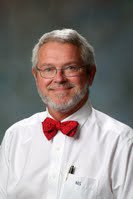Polymath
Well, there’s a word for you! It comes from the Greek (as you erudite readers already guessed) and refers to a person who is highly and broadly educated. A synonym that has fallen out of usage is “renaissance man”. Polymaths are people who have received a liberal (“broad”) education and have literally “learned much” from their schooling. Polymaths are useful for those of us who deal with curriculum development.
Leonardo da Vinci, Michelangelo, Omar Khayyam, and Leon Alberti are often cited as the perfect examples of polymaths. In our current age of specialization it might be hard to find such people. Does one come quickly to mind? Probably not. In fact, our friends and neighbors with a broad spectrum of knowledge and ability are slightly marginalized by our speaking of them with such terms as “jack of all trades but master of none” or simply “generalist.” These are not necessarily words of contempt, but they clearly imply that a lack of specialization indicates some sort of intellectual weakness.
There’s more than a bit of irony in this attitude. The Renaissance ideal emphasized something called “universal education”. This, by the way, is precisely where we find the roots of the word “university”. There are those who will argue that the sum total of human knowledge during the time of the Renaissance was accessible to any good mind. Today, so the argument goes, the sum total of human knowledge doubles every day. (Even in the early part of the 20th century it only doubled every hundred years.) With this kind of pace, how can anyone claim a liberal education? The argument is fallacious.
The Renaissance ideal never claimed that a fine mind should know everything. It claimed that a fine mind should know a great deal about things that were worth knowing! Languages, music, the arts, history, sciences, and mathematics were considered worthy. That has not changed. What has changed is the parts of these disciplines that have contemporary worth. And that, my friends, is what makes curriculum development so tricky.
So have you thought of any modern polymaths yet? You might be one! Your neighbor down the street could be one. Perhaps you’d be interested in the American anthropologist, ornithologist, physiologist, and author Jared Diamond. Check him out sometime. In the meantime, look at any elementary school classroom. They are packed with polymaths. They are gifted in the area of liberal education. I would urge every teacher and administrator to avoid training them away from their giftedness with the hollow promises that specialization offers. Rather than decrying the generalist, let us raise up a generation who know a lot about a lot.










